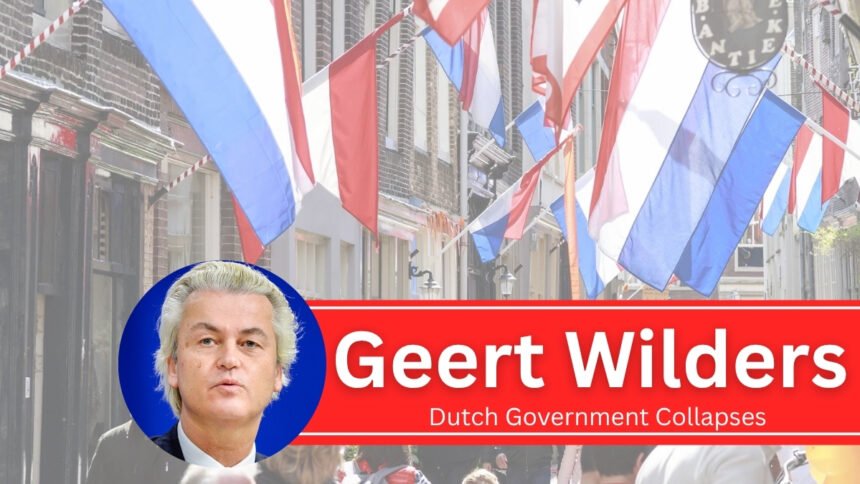Geert Wilders : On June 3, 2025, the Netherlands faced a significant political upheaval as Prime Minister Dick Schoof announced his resignation following the withdrawal of the far-right Party for Freedom (PVV), led by Geert Wilders, from the ruling coalition. This move has plunged the country into political uncertainty, with new elections anticipated in the coming months
READ MORE :- Tragic San Diego Plane Crash Claims Six Lives, Including Music Industry Figures
Background: Formation of the Schoof Cabinet
The Schoof cabinet was established on July 2, 2024, after the 2023 general elections. It comprised a coalition of four parties:
- Party for Freedom (PVV)
- People’s Party for Freedom and Democracy (VVD)
- New Social Contract (NSC)
- Farmer-Citizen Movement (BBB)
This coalition marked the first time PVV, NSC, and BBB held seats in the government. The cabinet was led by independent politician Dick Schoof as Prime Minister. The coalition aimed to implement strict asylum policies and various reforms across welfare and health sectors.
The Collapse: Disagreements Over Immigration Policy
The coalition’s stability was tested by internal disagreements, particularly over immigration and asylum policies. Geert Wilders pushed for radical measures, including border militarization and mass deportations, which were met with resistance from other coalition partners. The inability to reach a consensus on these issues led Wilders to withdraw his party from the coalition, prompting Prime Minister Schoof’s resignation.
Political Repercussions and Public Reaction
Wilders’ decision has been met with criticism from former allies, who accused him of prioritizing personal ambition over national interest. The collapse has also led to a decline in public support for the PVV, with polls indicating a shift towards centrist parties like the VVD and a Labour/Green alliance.
What’s Next: Caretaker Government and Upcoming Elections
With the dissolution of the coalition, a caretaker government will manage the country’s affairs until new elections are held, potentially in October 2025. The political landscape remains fragmented, with 15 parties in parliament and a minimum of 76 seats needed for a governing majority. The upcoming elections will be crucial in determining the Netherlands’ future direction, both domestically and within the European Union.
Conclusion
The collapse of the Dutch government underscores the challenges of coalition politics, especially when ideological differences are pronounced. As the Netherlands prepares for new elections, the focus will be on forming a stable government capable of addressing pressing issues such as immigration, economic policy, and social welfare.


















